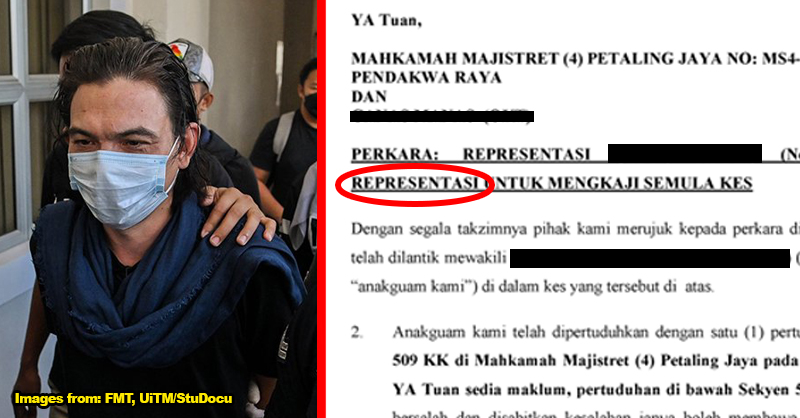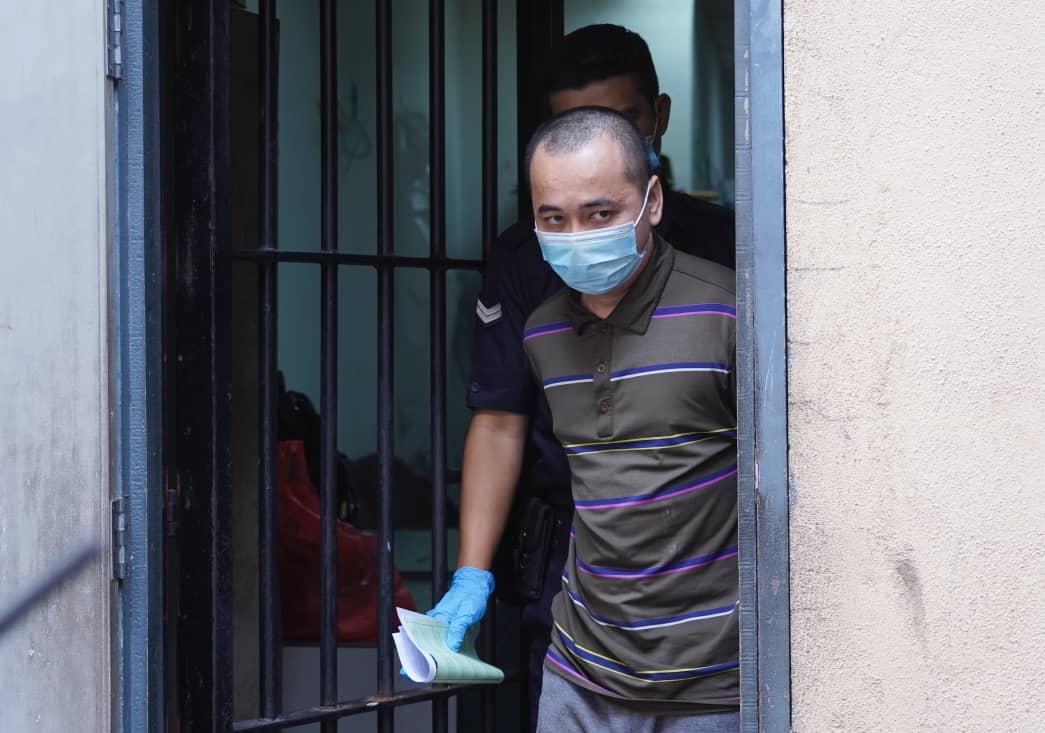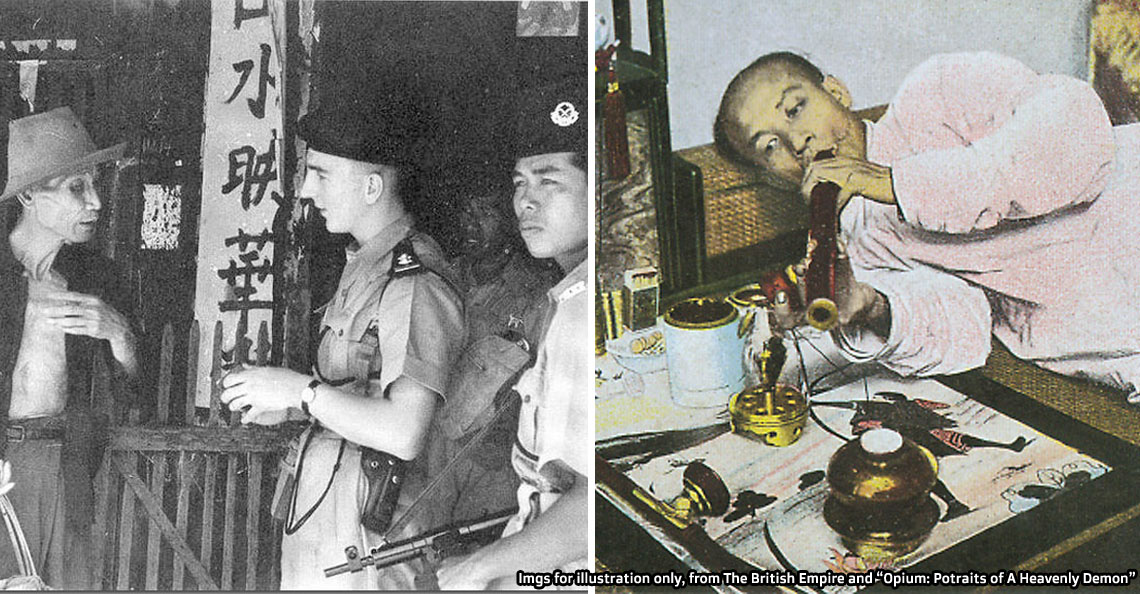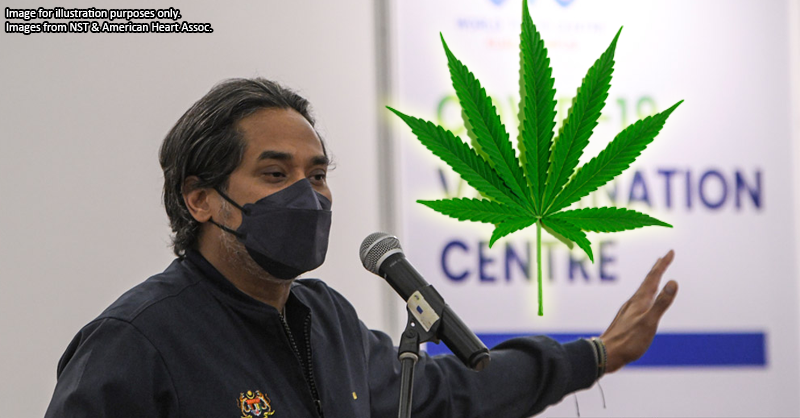What is a representation letter, and how can it get you off the death penalty?

- 1.2KShares
- Facebook1.1K
- Twitter9
- LinkedIn6
- Email10
- WhatsApp36
Social media went into a frenzy when popular nasyid singer-composer Yasin Sulaiman was revealed to have been arrested and charged for growing cannabis plants in his Kota Damansara home. He has been charged with Section 6B (1) (a) and Section 39B of the Dangerous Drugs Act 1952, which carry a life sentence, and death sentence respectively.

Interestingly, another story resurfaced on socmed around this time: Twitter whistleblower account Edisi Khas had earlier posted about Malaysian business tycoon Tan Sri Vincent Tan’s son Nevin being arrested in late 2019 for a similar reason. The Twitter account was then suspended for a day, before returning under a new handle. Netizens were quick to point out the vastly different outcomes between the two cases:
https://twitter.com/yasaobi/status/1509536561876312069
In response, the then-Attorney-General Tommy Thomas was quoted as saying that he had ‘reduced the charges’ after receiving a letter of representation from the accused’s lawyers, classifying the case as NFA (no further action):
“Receiving representations from lawyers and accused, and reducing or dropping charges thereafter are common occurrences in AGC (Attorney-General’s Chambers).” – Tommy Thomas
Which of course led netizens to draw comparisons between Yasin’s and Nevin’s case, with some alleging that nepotism had been in play in the latter’s case. Even Najib Razak shared this suspicion, and called for it to be investigated.
But was that really the case? What exactly is a representation letter, and how does a piece of paper carry so much weight over a court’s decision, even in death penalty cases?
A letter of representation is essentially a ‘get out of jail’ card, with certain conditions
Usually submitted to the prosecution, or, like in high-profile cases like Tan’s, to the Attorney-General’s Chambers, a letter of representation (commonly known among lawyers as a ‘rep’ letter), is written with the intention of dropping or reducing the charges. Typically, a rep letter offers something to the Prosecution in exchange for letting the accused off the hook, or amending the charges. This can take the form of the defense offering the accused as a cooperative witness, submitting a guilty plea, or a witness statement stating the accused’s factual position in the case.

But of course, it’s not that simple. Adversarial law is like a chess game; different situations call for different tactics, and you have to pick your moment. While a counsel may submit a rep letter at various stages of the investigation/trial, a counsel has to consider which stage(s) of investigation/trial to submit, the circumstances of the case, disposition of the Prosecutor, and even the timing of the submission. Because while you can use a rep letter to psych out a Prosecutor who doesn’t feel like he/she has a strong case, it could also work against you, as the information you provide could be misused, or it could be seen as interfering with investigations. So, it’s a double-edged sword.
With that being said, rep letters are not guaranteed to be approved
Of course, while the choice of whether or not to charge someone ultimately lies with the Deputy Public Prosecutor (DPP), the AG may veto it since 1) the AG has constitutional discretionary power to do that, and 2) the DPP represents the AG (aka the Public Prosecutor) in court, meaning that the AG is their boss. But how often does the DPP/AG choose to exercise that power? Well, unfortunately for people going through criminal cases, the chances are often slim.
Perhaps the most high-profile rejection of a rep letter in recent years was that of Vietnamese national Đoàn Thị Hương, whose rep letter to free her from the charge of murdering Kim Jong-nam (North Korean leader Kim Jong-un’s brother), was rejected by Tommy Thomas. But despite the initial rejection, her murder charge was later dropped, and she pled guilty to a charge of ‘causing harm’ instead.
And it’s not just for murder cases either. Just ask Samantha Chong, lawyer and drug policy reform advocate, who tweeted this in response to the Nevin Tan case:
He was charged for s39B with two others in December 2019 and the case was disposed on 10 Feb 2020.
What we really need to know is why his charge was reduced. My client was charged with similar offences but our representation letter was rejected by the prosecution.
— Samantha Chong 🇲🇾🇵🇸 (@Samantha__chong) February 20, 2022
Chong is not the only person who’s felt short-changed by this perceived double standard; there’s also Khai (not his real name), whose brother Jay was a drug offender who was sentenced to death (later commuted to life):
“I’m not questioning his (AG’s) authority. But I’m thinking about my brother. Why can’t he be treated like that person (Tan)? He’s still young. He had a bright future ahead of him. He had no criminal record before his arrest.” – Khai
Or ex-BERSATU Youth Leader Adam Asmuni and his wife Lyiana Rosli, after the latter had her rep letter rejected by the AG recently (both are facing the death penalty for drug trafficking).

With that being said, there have been rep letters that have been approved relatively recently. Like in the case of Najib Razak’s lawyer Datuk Wira Mohd Hafarizam Harun’s representation last year, letting him off a money laundering charge with a slap on the wrist. Another, more controversial verdict was in the case of MA Ambika, who was accused of murdering her Indonesian maid, but was acquitted after her representation was accepted.
The Malaysian Bar has called for a review of the procedure of considering rep letters

One thing about rep letters is that while the AGC may have internal guidelines regarding the accepting or rejection of rep letters, these are not open to lawyers or the public. So we can only know if a representation has been accepted or not, but not why:
“We have come across some cases being accepted but not others although the facts are similar.” – Salim Bashir, ex-President of the Malaysian Bar and co-counsel for Đoàn Thị Hương
“The public does not know what is the consideration made by the prosecutor. This can give rise to a perception that there has been unequal treatment of persons who face different charges for what appears to be the same criminal act.” – Samantha Chong
Because simply saying ‘I didn’t take bribes’ isn’t enough to quell speculation on the ex-AG’s controversial decision, especially when no one knows how he arrived at that decision. Not that we like the idea of anyone going to the gallows for a plant, but the end of the day, these lawyers’ concerns are also the public’s concerns: why are different things happening in similar cases? Answers are needed.
- 1.2KShares
- Facebook1.1K
- Twitter9
- LinkedIn6
- Email10
- WhatsApp36



